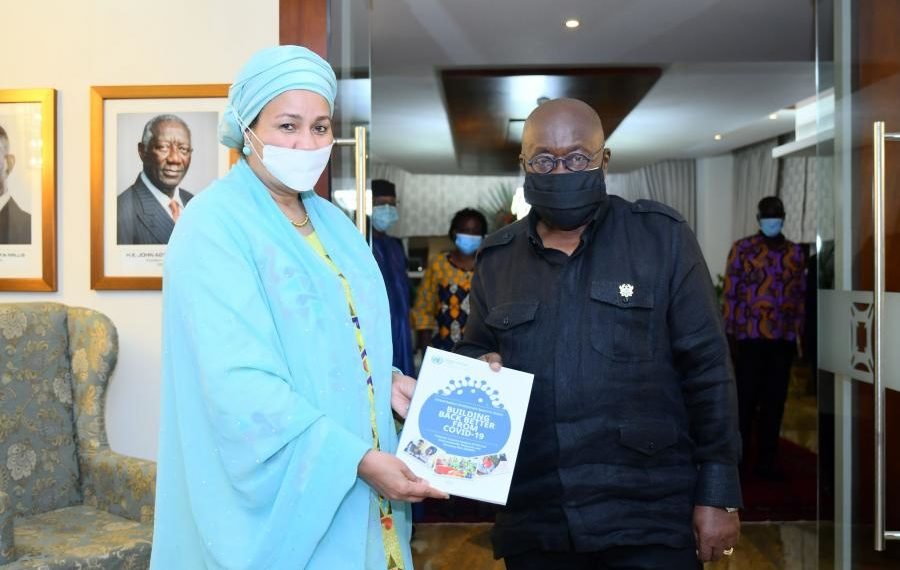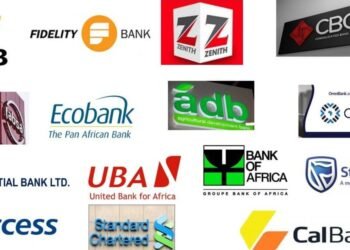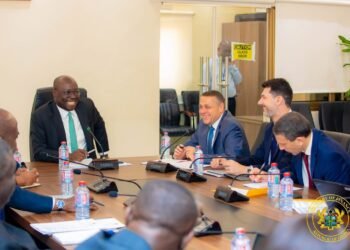The UN in Ghana has officially released its Socio-Economic Response and Recovery Plan (SERRP) for Ghana, a document which was presented to the President of the Republic later this month by the UN Deputy Secretary-General.
The document spells out a five-themed policy framework that is aimed at helping Ghana maintain a resilient recovery in this era of Covid. The five themes include; prioritizing the health of the Ghanaian people; helping people cope with adversity through social protection; protecting jobs, supporting MSMEs and informal sector workers; supporting government’s macroeconomic policies; promoting social cohesion and community resilience.
The SERRP seeks to disburse about $91m of existing resources and commits to raise an additional US $39million over the next 12-18 months. The recovery plan is aligned to the UN in Ghana’s Sustainable Development partnership (UNSDP 2018-2022) and the Ghana’s Coordinated Programme of Economic and Social Development Policies 2017-2024.
The Five Pillar Recovery Plan
Pillar 1: Health First: Protecting Health Services & Systems during the Crisis
Although, Ghana had experienced significant improvements in recent years, the emergence of Covid-19 exacerbated already-existing gaps in the health system. Ghana’s health facilities were overwhelmed by the increase in infections by the day and the government had to move swiftly in response to the challenges.
Despite the government’s early response, systemic challenges still persist. These include but not limited to geographical disparities in the distribution of health facilities, a very low doctor population and nurse-population ratios, inadequate buffer of medical supplies to replace disruptions in the supply chain, low use of digital technologies and innovations
UN Response plan
The UN response plan for supporting government’s efforts in addressing the health needs due to the pandemic include building the capacity of health staff for critical programmes, strengthening the medical supply chain, the protection of front line health workers and other essential services providers and also promote the use of digital technology to build a resilient health system.
The UN estimates that a combination of these actions would cost US$26,099,532.

Pillar 2: Social Protection and Basic Social Services
The implementation of Ghana’s social protection systems have contributed largely to poverty reduction and an improvement in social services over the years. Ghana halved extreme poverty levels in 2014 and the average social spending cap of 25% has helped to improve targeting social protection spending. The outbreak of COVID disrupted this system and placed the gains at serious risk.
Then again, the government rolled out a host of social interventions to alleviate the economic burden that people faced; sharing of food to the underprivileged, subsidizing water and electricity tariffs. This notwithstanding, many vulnerable groups, especially women and girls have been badly hit, unemployment rates have also increased.
UN Response Plan
In addressing these challenges and sustaining government’s already existing support, the UN offers to support the government, private sector and civil societies to ensure the most vulnerable and marginalized are reached with essential and basic services. The UN seeks to roll out 18 programmes under this plan which costs US$ 66.8 million.
PILLAR 3: Protecting Jobs, MSMEs and Informal workers
As part of efforts to assist the populace during the difficult times of COVID-19, the government rolled out stimulus packages to businesses to provide relief and also, recently designed a two-phase COVID-19 Alleviation and Relief for Enterprise (CARES- “Obaatan Pa”) programme.
However, significant demand for government support remains unmet and difficulties in financing the shortfalls resulting from sales revenues are unsettled. The recent COVID-19 Business tracker reports that firms that received some Government support increased from 3.2% to 9% from round one to round two. From the survey conducted a lot more people said that they had no information of government’s stimulus package.
More so, about 80%-90% of the labour force are in the informal sector with 70% in the urban areas and still a large proportion being women. There is therefore the need for increased support targeted to those in this sector in order to reduce their vulnerabilities to poverty.
UN Response
The UN seeks to support the Government with technical advisory services to develop Government and public sector capabilities to attract private sector investments through Public-Private Partnership initiatives. Also, the UN will complement the efforts of the World Bank, IFC, AfDB and others to provide adequate financing capacity in supporting Government’s Covid-19 alleviation programmes and others that are in line with the UN SDGs. The estimated cost for these supports amount to US$ 27.5 million.

Pillar 4: Macro-economic Response and Multilateral Collaboration
Overall, Ghana’s macroeconomic stance does not look good. Covid-19 related expenditures have increased to an extent of running the country’s debt to as high as 71%, fiscal deficits have far exceeded target, real GDP growth has declined sharply, revenues have further slumped, the various sectors of the economy have generally declined in shares to GDP, corruption has worsened the more.
Although, inflationary pressures and the exchange rate has fairly been stable. A compounding effect of these indicators may adversely affect the economy’s path to recovery.
UN Response
According to the UN in Ghana, recovering better requires a thorough analysis and advice on creating the fiscal space to address the SDG agenda as well as creating opportunities for enhance trade. The UN will also help build multilateral mechanisms and create space to support the important role of the public policies in dealing with the crisis
Pillar 5: Social Cohesion and Community Resilience
Ensuring shared and proportionate growth in municipalities, metropolitan and district assemblies throughout Ghana have not been successful. Many municipalities are unable to raise the needed revenues to support social and infrastructural needs of their people and the wake of the pandemic has worsened the situation.
In the quest to control the virus, the restrictions instituted did not consider existing social norms and inequalities that result in different effects on various groups. The ability of marginalized women and girls, as well as young people and the aged to cope with and recover from the crisis were compromised.
This notwithstanding, there are increased concerns about the peace and security of the country as we near the December 7 elections. There are also frequent reports of small arms and weapons seized from groups of people entering the country’s borders.
UN Response
The UN in Ghana seeks to support response and recovery through developing institutional, civil society and community capacity on human rights. Thus, creating platforms that enhance social dialogue, consensus-building and peaceful political engagements. So as to ensure that a free, fair and credible election is held and people’s rights are not infringed upon.





















